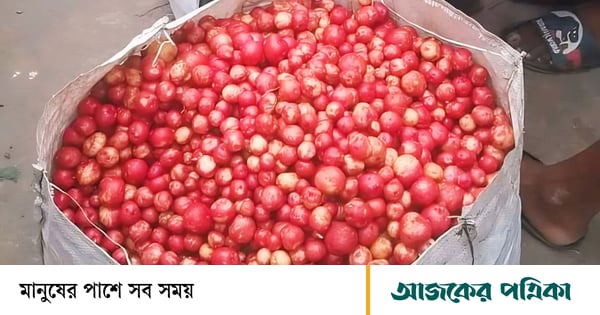Potatoes hold the top position in the agricultural economy of Bangladesh. It is one of the staple food grains of the country and an essential part of people's daily diet. However, in recent times, the abnormal increase in the price of potato in the market and the shortage of seeds have become a cause of deep concern. On the one hand, consumers, farmers—both face challenges as a result of rising prices; On the other hand, supply shortage, excess demand pressure, production crisis and import restrictions have further complicated the potato market situation.
Last season, farmers picked unripe potatoes and sold them in the market earlier in the hope of getting better prices. As a result, the normal production of the season was reduced. Apart from that, the farmers have increased the cultivation target this time due to the double profit from potato cultivation in the last season. This has significantly increased the demand for seed potatoes. This volatility in the potato market is due to the two-pronged pressure of production shortfall and excess seed demand.
Price conditions in the market
Meanwhile, an exception to the normal price cycle of the potato market is seen this year. According to Trading Corporation of Bangladesh (TCB), this price is 35 percent higher than the same period last year. Generally, the price of potato is limited to Tk 20-30 during the production season and Tk 45-50 at the end of the season. But since the beginning of this year, the price of potato has been on the rise, which is now Tk 70-75 per kg. On the other hand, the price of potato at the cold storage stage is currently Tk 60-62 per kg, and the price of seed potatoes is higher, at Tk 85-95.
Although in mid-November 2021, the price of potato in the country was Tk 20-25 per kg. In 2022, it slightly increased to 22-28 Tk. But in 2023 this price suddenly increased to 45-50 taka. This year the price has increased by Tk 20-25 per kg.
Meanwhile, two and a half to three months are still left for the start of the new harvest season. This situation has emerged as a new challenge for consumer and production systems. Those concerned fear that if it is not possible to increase the import quickly, this upper limit of the price will create great discomfort for everyone until the new yield is brought to the market.
Last year, the impact of natural calamities was so pronounced that Bangladesh could not keep the market situation under control even by regularly importing potatoes instead of exporting them. As a result, the seed potato crisis has also intensified. Due to two rounds of floods and heavy rains this year, farmers have also planted less potatoes in advance, raising fears.
Expect relief after two months
In this reality, the Department of Agriculture Extension has started monitoring the production and supply situation of potatoes at the field level. However, the Secretary of Agriculture gave hope. Mohammad Emdad Ullah Mian. In response to the question related to this, he told today's newspaper that the harvest of early potatoes has already started coming to the market. Its supply will increase further in the next two weeks, which will help lower prices. Besides, the ongoing potato import initiative may also have a positive impact on the market. All in all, the market situation will return to normal within the next two months, he said.
However, it has been found out on the field level that the advance potato is Tk 300-400 per kg. Shortage in supply against its demand may also affect the price of old potatoes. Experts have advised that, in this situation, it is necessary to increase imports quickly and ensure supply.
Demand, inventory and supply situation
According to the Ministry of Commerce, the annual demand for potatoes in the country is about 80 lakh tonnes and an additional 7.5 lakh tonnes is required for seed potatoes. According to this, there is an average demand of more than 6 lakh tonnes of potatoes every month, but the current stock situation is not enough to meet this demand.
Fazlur Rahman, Managing Director of Rajshahir Rahman Brothers Cold Storage, said that at present, about 10 percent of potatoes are stored in the cold storages, which can last till the third week of November. The market will then depend on advance yields and imports.
According to the Cold Storage Association, 4 million tonnes of potatoes were stored in cold storage at the end of last season. Of this, 4 lakh tons of potatoes are stored. To control prices, import duty was reduced from 25 percent to 15 percent in September this year, while the 3 percent regulatory duty was withdrawn. Even so, imports did not increase significantly. Apart from this, from January 2024 to November 12, 4.55 million tons of potatoes were allowed to be imported, but only 41 thousand tons were imported. Imports did not increase despite reduction in import duty. If the advance supply of potatoes is not increased, the market may face a crisis by December.

